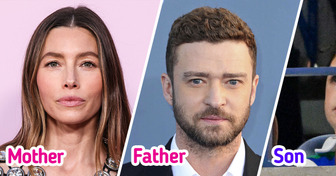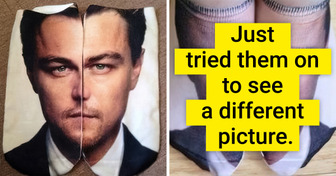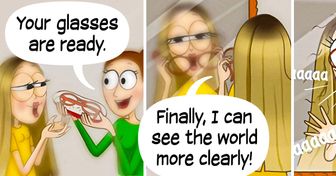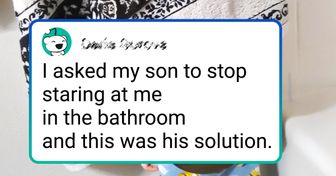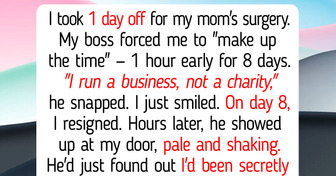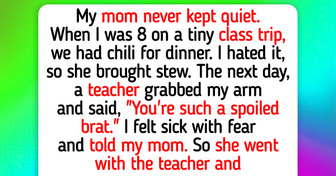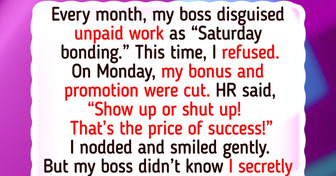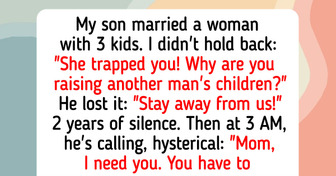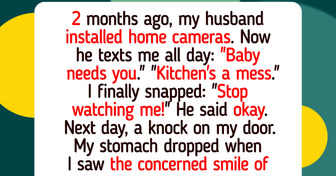20+ People Who Didn’t Realize How Beautiful They Were Until They Got a Complete Makeover


Hollywood has a tendency to use some old cliches about a job and create some new even more ridiculous ones. Probably the most common stereotype sounds like this: “a genius in one area is a genius in everything.” Well, in reality, if we take even the mathematicians who can do double and triple integrals in their heads, it turns out they may be really bad at working with numbers. So bad that calculating a restaurant tip becomes a real mission impossible for them.
We at Bright Side have found what movies’ and TV shows’ mistakes in portraying different jobs are crystal-clear for any professional, but are totally unexpected for a layman.
Lifeguards don’t jump in so often. They don’t save lives in the way it is portrayed in movies. And they do not do CPR on the daily basis, hardly. Their job mostly is to prevent that from happening. Which sounds quite logical. So most of the time they yell at people a lot enforcing them to be more careful and comply with all the rules and regulations. And they treat a lot of bloody noses as well.
The job of a real archaeologist is not as romantic and full of adventures as we’ve been led to believe. Actually, it is way more boring than that. At least in the eyes of a layman.
Most of the time archaeologists dig the ground inch by inch, swear at tree roots, stare at tiny pieces until they go cross-eyed, and read huge reports. Then they put all the old things in bags, then put groups of those bags together into bigger bags, and finally put all the bagged things into boxes.
There are too many boundary crossings and boundary violations on TV. Mental health specialists don’t have intense relationships with their patients. They don’t meet them at odd locations or odd hours to help them get through some situations.
They don’t use people to work out any of their own deep inner turmoil in their psyche as well. And there are no catharsis or dramatic moments when everything ’comes together.’ No, mental help is a very long process. And no movie will show you that, including the amount of paperwork and administrative burden between all the patients.
The kitchen is also hardly found to be portrayed accurately. In the movies, everything is so neat, clean, and looks like it was bought just yesterday. In reality, it’s a high-stress job where people are rarely calm and often scream at each other from across the kitchen. Nobody except the waitstaff really cares about their appearance. Everyone is more concentrated on making food and making it well. There’s no place for glamour except the plate a tasty dish is served on.
One more romanticized profession. On-screen, bar musicians are shown as big dreamers hating their job and hoping that one day their life will change dramatically. While in reality not all of them are depressed waiting for some big talent scout from a label to come to the bar and notice them. No, many of the musicians love their job and play in bars joyfully.
Most of the time librarians are seen as walking encyclopedias, guys that have read thousands of books and know everything about everything. Also, their profession is considered to be one of the calmest and easiest in the world.
While in reality, it’s all about paperwork, being a teacher, immigration clerk, social worker, and tech support. Not mentioning babysitting and other stuff. It of course depends on the library you work at, but more often than not, one of the last things any librarian will do at work is read books.
Private investigators don’t chase people taking endless interviews face-to-face. They don’t try to find any hidden tricks or unmask a potential liar. And they don’t run around a city to find the necessary evidence. Indeed, it’s a pretty rewarding and interesting job, but it is not even close to anything we see in movies.
Most of the time, investigators sit in front of their computers identifying and verifying information, looking through the subject’s social media pages for potential leads, sitting in a car waiting for the subject’s activity, making phone calls, and conducting interviews over the phone. Well, it sounds like another office job, doesn’t it?
University professors don’t give a lot of inspirational lectures that change their students’ lives. Though it may happen from time to time, we should understand that they simply don’t have time and energy left for all these sweet but thankless things.
Most of them work 60 or even 80+ hours a week planning lessons, doing administrative work, personal research, presentations, reviewing, editing, etc. They try hard to make a name for themselves in their respective fields. They try to do scientific work and do not play in any ’life coaching’ things.
And finally, a job that has been partially portrayed right. At least in some recent movies. As a rule, people don’t get into fashion to be creative. They like working with their hands and making things. Working for yourself is quite challenging these days.
In the latter case, people will have to work 7 days a week, extended hours, and hire unpaid interns to keep things going. That’s why most designers prefer to work for big names and companies, preferring to be ’ghost designers’, like ghostwriters but for clothes.
How do movies portray your job or profession? What essential details do they hide or show from a very shady perspective? Please share this information with us all in the comments below.

